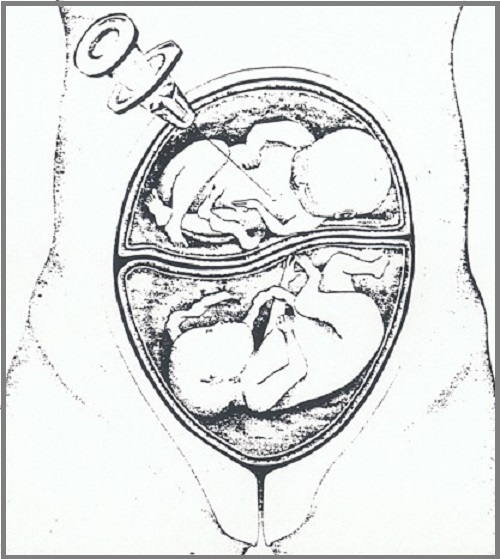Family

Abortion for the sake of the family?
Abortion never benefits the family
Abortion is sometimes advocated for the sake of family welfare. "We cannot take care of another child. It would not be fair to the other children." These, and other similar reasons, may be valid for not bringing another child into existence. But once a child is there? We have only to remember that the child in the womb is already there, as much as any born child. She is just as real as a born child and should be treated in the same way.
The reply to this abortion argument is basically twofold.
1. Abortion would not be right even if it did benefit the family. We cannot benefit people by murdering someone.
2. Abortion does not benefit a family. On the contrary, it has, in general, a disastrous effect on the family and its members in four specific ways.
First, in a society where abortion is accepted, children who survive to be born naturally wonder why they exist when many of their brothers and sisters were destroyed. Such children, Dr. Ney states, may suffer from guilt, from distrust regarding their future, and from carrying a heavy burden of expectation they may not be able to fill. "Since their fate once hung on their desirability, they tend to feel secure only when they are pleasing to their parents."
This is a heavy burden to carry, not all children succeed. In some cases it may lead to depression and suicide. Ney also explains that having abortions causes guilt leading to "antepartum depression that interferes with a mother's ability to bond." Failure to achieve bonding with the child tends to lead to child abuse, problems with subsequent pregnancies, and aversion to touching a child born later.
Children who are abortion survivors, since they feel they exist only because their mothers chose them, tend to feel deeply insecure. "Since their security rests in their wantedness.... [they] keep checking. . . , 'Do you really want me?'

Abortion cheapens life
The deepest and most devastating effect of abortion on family life and the other children especially, is that abortion cheapens life.
Abortion diminishes the value of all people, particularly children. When the destruction of the unborn child is socially sanctioned and even applauded, the child can't have much value. More than anyone, children realize they are becoming worth less. Thus, the rate of suicide has increased correspondingly.
If society adheres to the ethic that the unborn child only has value when he is wanted, that ethic can easily be applied to small children.... If the unborn has no value and it is all right to kill him, then it is defensible to kill children who have lost value because they are now unwanted.
People do not harm what they highly value. As children decline in value, it becomes easier to neglect and dispose of them.
An eminent psychiatrist puts it well when he observes that making abortion legal and readily available means that a "childbearing woman ... became a solo entity unrelated to husband or boyfriend, father or mother, deciding for herself what to do with her child. She was conceived atomistically, cut off from the family structure."
Finally, abortion can be devastating to the man, and to the relation between him and the woman.
The man is often the forgotten figure in the abortion drama. "What many people don't realise is that men, too, suffer from the abortion process - especially fathers of aborted children. Whether they encouraged the abortion or opposed it, they endure feelings of guilt, depression, grief, and often describe the abortion experience as bewildering and painful beyond their coping abilities."
Not surprisingly, abortion takes its toll on human relationships: Researcher Emily Milling found that "of more than 400 couples who went through the abortion experience, most of the relationships (70 percent) had failed within one month after the abortion."
Condemned to death
As far back as 1981 a prestigious medical journal described how a disabled child was aborted. It made chilling reading
Stabbing of disabled twin
Two obstetricians who killed a disabled child in utero published an article describing their action in the New England Journal of Medicine (18/6/1981). When a woman carrying twins, one with Down's syndrome, was referred to Dr. Thomas D. Kerenyi and Dr. Usha Chitkara of Mt. Sinai School of Medicine in New York, the doctors explained that they might be able to destroy the Down's Syndrome child without physically damaging the other twin. The mother agreed to the procedure.
The doctors then proceeded to stab the child in the heart and draw out half his blood. The child died, but was not aborted. Several months later, the other twin was born alive, and the dead child's body was delivered with the placenta. On two previous occasions, other doctors had attempted what they describe as "cardiac puncture" as a method of eugenic selection between twins. In one case, both twins were aborted a few weeks after one was killed.
In the other case, the unharmed twin was born seven weeks prematurely. The stabbing as described in the NEJ of Medicine was observed using ultrasound equipment, which made it possible to watch the events in utero. The mother was in her twentieth week of pregnancy. Ultrasound scanning produced a moving picture of the inside uterus on a small television screen.
Keeping his eye on the screen, Kerenyi inserted a needle into the mother's abdomen through the amniotic sac of the targeted baby and into his heart. The heart was less than an inch wide but Kerenyi hit it on his second try. He withdrew an ounce of blood (40 - 50% of the baby's total blood volume). The heartbeat began to slow and gradually stopped.
Kerenyi knew that the retarded child had been located above the normal one at the time of the amniocentesis, but the babies might have exchanged positions after that. To make sure he had destroyed the handicapped twin, Kerenyi sent the extracted blood for genetic analysis. Three days after the stabbing the mother heard the results from the laboratory: the destroyed child was the one with Down's Syndrome.
The condition for which the boy was killed, Down's Syndrome, produces some mental retardation, but many Down's syndrome children learn to function well and the condition is usually not serious enough to require institutionalisation. The doctors used a collection of medical euphemisms to describe the stabbing.
Besides "cardiac puncture" they also spoke of "selective termination of the abnormal foetus" "the procedure" "a destructive procedure" (referring to the possibility of stabbing the wrong twin), "foetal demise" and "correct intracardiac placement of the needle."
Ironically, the article about stabbing an unborn child was immediately followed in the NEJM by an article about successful treatment for unborn children with congestive heart failure.
This was an innocent living human baby whose only fault was that he wasn't as perfect as someone wanted him to be. This is an elitist mentality. How is it that the medical profession has turned to exterminative medicine and turned away from its time honoured charge to cure?

Links
- New book compiles pro-life stories of families with special needs children
- 6 things Down Syndrome parents wish you would stop saying
- Mom and daughters charged with starving to death brother with Down syndrome
- I was told I should have aborted my Sophia: Mum of daughter with Down syndrome speaks